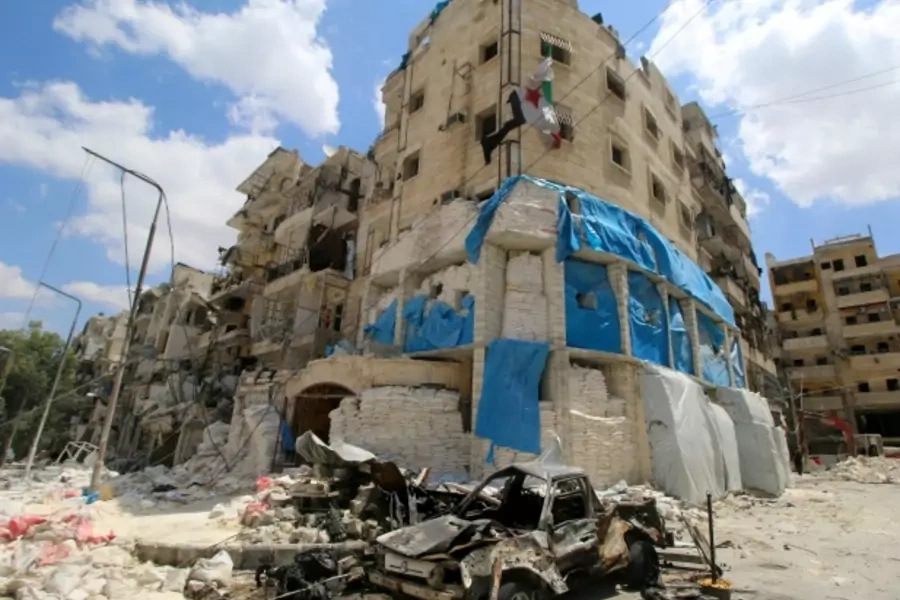Syria’s Doctors

In late May 1994, I boarded a Pakistan International Airways flight bound for Islamabad with intermediate stops in the Netherlands and Syria. It was the summer between my two years at the Johns Hopkins School of Advanced International Studies, and I was headed to the Institute for Teaching Arabic to Foreigners in Damascus. Somewhere halfway across the Atlantic that night I struck up a conversation with the guy sitting next to me, who was juggling two little fidgety children. He was probably the same age that I am now. For the life of me I cannot remember his name or where in the United States he lived—I want to say Texas, but it could have been California or Illinois—but I do remember his profession. He was a doctor.
We chatted all the way to Amsterdam and most of the onward flight to Damascus. It was plane talk: where I was from; where he was from; where he studied; where I studied; why I was interested in the Middle East; why he was going to Syria; why I was going to Syria; U.S. politics; Middle East politics; the service aboard the airline, which left much to be desired; his family; my girlfriend. The kind of stuff that whiles away the hours and dulls the discomfort of being jammed into the last cabin of an overstuffed Boeing 747. When we finally landed in Damascus and began to disembark, my doctor friend gave me a piece of advice: “If you get sick or injured during your stay in Syria, do not let them take you anywhere other than the Al-Shami Hospital.” I thanked him and we went our separate ways.
More on:
Three weeks later, my friend Patricia Sabga (formerly of CNN, NBC, and Al Jazeera) and another SAISer bundled me into a Damascus taxi in the middle of the night and asked the driver to go to mustashfa ash-shami. The driver looked over at me, sweating, shaking from uncontrolled chills, and hanging onto Patty for dear life, and gunned the engine. The next thing I knew I was hooked up to an IV, and the next thing after that I woke up to what seemed like a dozen young physicians looking down on me. It was morning rounds. After a rundown of my symptoms, the residents concluded that I did not have the flu as the emergency room attending had suspected, but that I had eaten a bad batch of fettoush (I am never careful; I had an almost exact replay of this episode five years later in Ankara, with the part of Patty being played by my wife and lahmacun being the the offending food). The lead physician was none other than Dr. al-Shami. He spoke the Queen’s English and assured me that I would be feeling a lot better in a few hours. He had a good laugh when I told him that, in the United States, they only named hospitals after dead people, and said, “I know.” As Dr. al-Shami promised, I felt a lot better by the late afternoon and he discharged me. In the pantheon of “Steven’s Hospital Visits”—yes, there are enough for there to be a “pantheon”—it was among the best. It makes for a great story, of course, but the truth is that everyone with whom I came into contact at Al-Shami Hospital was warm, caring, and professional.
The story came alive for me again at the end of last week when the Assad regime (or the Russians) bombed a hospital in Aleppo. Among those killed were nurses and doctors, including the last remaining pediatrician on the rebel-held side of the city. Of all the horrors to emerge from Syria in the last five years, this is among the absolute worst. Doctors and nurses—the people who ease the pain and heal the sick and wounded—targeted. Sadly, the Syrian regime began plumbing these depths of depravity long ago. I wonder what happened to all those doctors who took care of me way back when.
More on:
 Online Store
Online Store